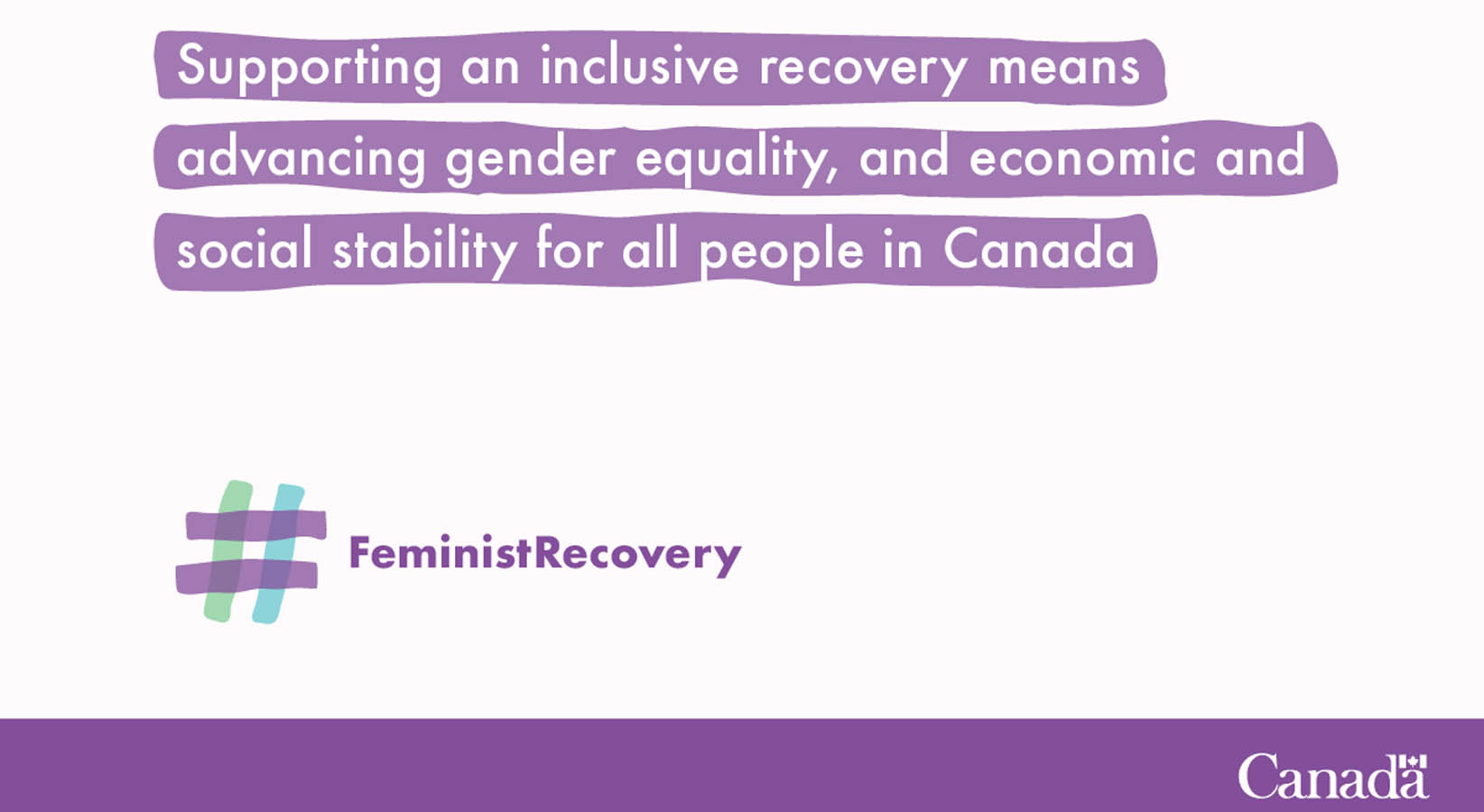Women and COVID-19
The COVID-19 pandemic has affected everyone, but not equally. The disproportionate impact of COVID-19 on women is recognized in Canada’s 2021 International Women’s Day theme, #FeministRecovery.
Impact of COVID-19 on Women
Women in BC and Canada
- Women in BC were the first to be impacted by job losses, to a greater extent, and for longer; women lost 60% more jobs than men in March 2020.
- As daycare centres and schools closed, caregiving responsibilities fell largely on women’s shoulders. Working mothers in BC, aged 24 to 55, also lost 26% of their work hours in April, compared with 14% of work hours lost by working fathers. Women attributed 6x more of these lost work hours each week to family responsibilities than men.
- Women dominate occupations with a high risk of exposure to COVID-19, roles that are often deemed essential. Over half of employed women in BC work in one of four industries with high face-to-face interactions: healthcare, retail, education, and hospitality.
- Frontline support workers are reporting dramatic increases in incidences and severity of gender-based violence since the onset of the pandemic.
These findings are from Unmasking Gender Inequity, a current series of reports and a microsite from the BC Women’s Health Foundation.
Role of Literacy
As our Literacy Matters fact sheet indicates, literacy is a lever for participation at work, at home and in the community. Literacy can help improve women’s access to information, their opportunities in the workforce, and their health and the health of their families.
Literacy has a role in supporting an inclusive recovery from COVID-19.

Related Blog Posts
World Children’s Day and National Child Day
Saturday, November 20th is World Children’s Day and National Child Day in Canada. How will you celebrate?
Decoda’s Summer Reading: Christie Case
Join us every Wednesday in July and August, and learn about the Decoda staff’s summer reading picks.
National Day for Truth and Reconciliation 2022
September 30 marks the second annual National Day for Truth and Reconciliation and Orange Shirt Day.

